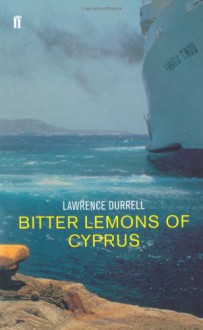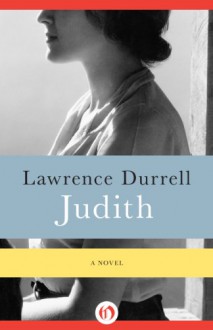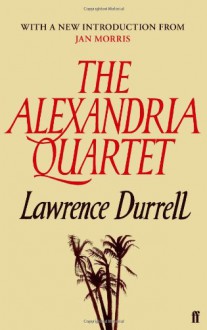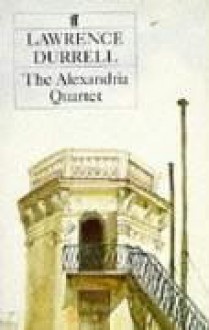
I bought this because I enjoyed his little brother's account of life in Greece very much. I was also hoping to learn more about Greek influence and Cyprus as a tourist destination.
Although the first paragraphs of the book are quite purple, it seemed to promise to deliver the goods on stereotyping Cypriot Greeks, if only, it turns out, because Lawrence Durrell is so British.
I have a tiny, short tourist guidebook for Cyprus which happens to dismiss this book in one sentence. I thought that would be enough, but given the praise and high average ratings here, more needs to be said.
His early chapter about buying a house in Cyprus is easily one of the funniest things I've ever read. It was only in the hours after reading it that I had to reflect that, hang on, this guy sounds like a real jerk.
He arrives having already lived in Greece and speaking Greek. He says he didn't move to Athens instead because of the costs. He makes appeals directly to Greeks to honour their tradition of hospitality, then he hires a Turkish man (whom he describes as a reptile) to dissemble and shout at Greeks until they sell him a home with some magical balcony for practically nothing.
Then, in keeping with brief references in his little brother's book, he picks a high point in his house to slowly eat grapes and crack the whip on Greek workmen who may be lingering to tell the stories he loves so much.
But that is only a tiny hint of what's to come.
Although he claims to hate politics, he takes a job as an Information Minister with the British government of Cyprus. True, it appears to have been an inopportune time, with, according to Durrell, Athens radio whipping up the stupid peasants with ideas of independence.
The real position of Lawrence Durrell? "As a conservative, I fully understand, namely; 'If you have an Empire, you just can't give away bits of it as soon as asked.'
He does relay the opinion of one British official that not a single university, swimming pool, or many other amenities had been built in Cyprus under British rule. Then, as a member of the British government himself, Durrell slowly provides a bare sketch of the timeline, as anti-British sentiment builds. It seems a new constitution, with mostly stick and no carrot, was outlined in broadsheets. Durrell can take a breather to add random notes about sunsets in the book, but he can't be bothered to provide details on this constitution, even in an official capacity.
Then, British troops shoot three youths "under severe provocation" in Limassol, a "trivial" incident. No greater detail provided. His greatest recommendation? More police.
And so the rest of the book apparently goes, giving Durrell's unabashedly nationalistic sketch of the war of independence in Cyprus.
Skipping extremely rapidly though the rest, I came on this choice bit:
"Coming out of the Colonial Office, I knew at once that the Empire was all right by the animation of three African dignitaries...They gave off over-powering waves of Chanel Number 5 - as if they hosed themselves down with it...like genial elephants".
Some of his knowledge of Greece doesn't seem without merit, such as the fact that Europeans somehow forget that modern Greece's greatest historical influence is probably the Byzantine era. Or his confirmation that a few "lunatics" in Crete or Rhodes could start a struggle for Greek independence almost anywhere.
Would it be fair to say that Durrell is just a product of his time? I also have another book written by his little brother, this time in Argentina. Not only is it very funny, but it is remarkably unselfish, with heart. Gerald makes a short appearance in this book, and although not much is described, he wins more Greek favour in a few days than Lawrence deserved with his dissimilations, lies, and empire building.



 https://www.youtube.com/watch?v=YlInc...
https://www.youtube.com/watch?v=YlInc... Description: A breathtaking novel of passion and politics, set in the hotbed of Palestine in the 1940s, by a master of twentieth-century fiction
Description: A breathtaking novel of passion and politics, set in the hotbed of Palestine in the 1940s, by a master of twentieth-century fiction
 Even though it took me ages to finish this massive read, the eloquence and the elegancy of the prose blew me away. I absolutely adored the fact that the plot was non linear,at least during the first 3 books, whilst the landscape descriptions were mesmerizing and haunting.
Even though it took me ages to finish this massive read, the eloquence and the elegancy of the prose blew me away. I absolutely adored the fact that the plot was non linear,at least during the first 3 books, whilst the landscape descriptions were mesmerizing and haunting. I bought this because I enjoyed his little brother's account of life in Greece very much. I was also hoping to learn more about Greek influence and Cyprus as a tourist destination.
I bought this because I enjoyed his little brother's account of life in Greece very much. I was also hoping to learn more about Greek influence and Cyprus as a tourist destination.
